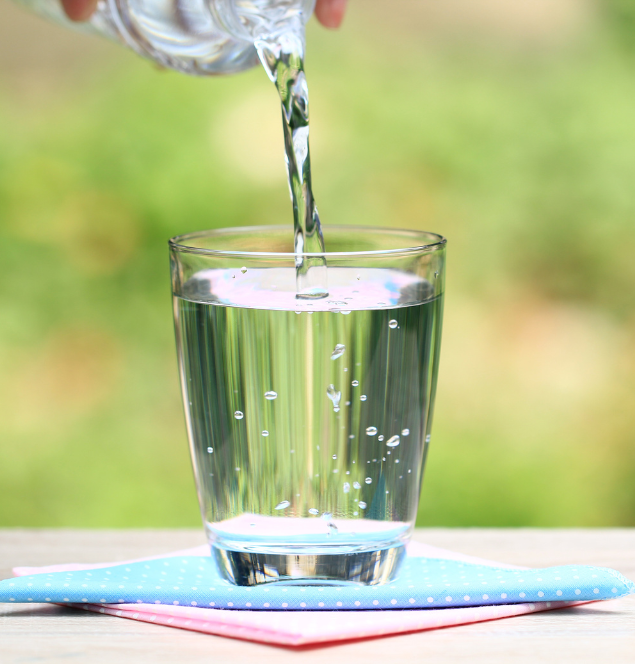When I was growing up and even through my twenties, water was not part of my diet. Back then, there was little information about the benefits of drinking water. I mostly drank orange juice, milk, the occasional soda, and coffee. In my late thirties, I started experiencing bumps on the back of my arms that were scaly and unsightly. Creams and exfoliating helped a little bit, but in the winter, the skin on my fingers would crack until the humidity of spring helped heal my skin. One day, I read an article randomly discussing the effects of water on skin health and decided to give it a try. To my surprise, it worked wonders for my skin.
But did you know that water is equally important for brain health?
LauraLynn Morrissey here, Founder of SilverSavvy. As a prior owner of a busy home care company and a certified aging specialist, I’ve witnessed the detrimental effects of dehydration on patients, particularly older adults. Dehydration can lead to confusion, dizziness, and even cognitive decline. Seeing these impacts firsthand made me realize the importance of proper hydration, especially as we age. I wish I had someone who educated me on this earlier.
The Dehydrated Brain: What Happens When We Don’t Drink Enough Water?
- Cognitive Decline Dehydration can lead to a decrease in cognitive performance. This means slower reaction times, reduced attention, and impaired memory. Studies have shown that even mild dehydration can impair brain function, making it harder to perform tasks that require focus and memory.
- Mood Swings and Anxiety Lack of water affects our mood. Dehydration can cause irritability, anxiety, and increased stress levels. Staying hydrated helps maintain a stable mood, crucial for overall well-being.
- Headaches and Fatigue Older adults often experience headaches and fatigue as a result of dehydration. This can exacerbate existing health issues and lead to a decreased quality of life. Hydration is vital in preventing these symptoms and ensuring one feels energized and ready to face the day.
- Increased Risk of Stroke Dehydration can increase the risk of stroke. Proper hydration helps maintain the balance of electrolytes and blood pressure, reducing the risk of stroke and other cardiovascular issues.
- Higher Susceptibility to Dehydration As we age, our skin thins, and we lose more water through our skin. This makes older adults more susceptible to dehydration. Thinner skin means that the body’s ability to retain moisture decreases, necessitating a higher intake of water to maintain hydration levels.
The Hydrated Brain: Benefits of Drinking Water
- Improved Cognitive Function Drinking enough water helps maintain optimal brain function. It improves memory, attention, and overall cognitive performance. A well-hydrated brain can perform complex tasks more efficiently and maintain higher levels of concentration.
- Mood Stabilization Staying hydrated helps stabilize mood and reduce the risk of mood swings. Water plays a critical role in maintaining the balance of hormones and neurotransmitters, which are essential for mood regulation.
- Enhanced Physical Performance Hydration is not only crucial for the brain but also for physical health. Proper hydration can improve physical performance, reduce fatigue, and enhance overall vitality. This is particularly important for older adults who want to maintain an active lifestyle.
- Prevention of Health Issues Drinking water helps prevent a variety of health issues, including urinary tract infections, kidney stones, and constipation. For older adults, preventing these conditions is essential for maintaining independence and a high quality of life.
Expert Recommendations
The National Academies of Sciences, Engineering, and Medicine recommends a daily water intake of about 3.7 liters (125 ounces) for men and 2.7 liters (91 ounces) for women. This translates to roughly 10-12 glasses (8 ounces each) for men and 8-10 glasses for women. However, individual needs may vary based on factors such as activity level, climate, and overall health.
Dr. Lawrence Armstrong, a professor of physiology at the University of Connecticut, emphasizes the importance of staying hydrated as we age: “Older adults often have a reduced sense of thirst, so it’s essential to make a conscious effort to drink water regularly throughout the day”.
Practical Tips for Staying Hydrated
- Carry a Water Bottle I now carry a 40-ounce travel mug of water with me practically wherever I go. I have seen the impact water has on my productivity (and skin) and I am a believer!
- Set Reminders I use a water tracker and reminder app that alerts me throughout the day to keep drinking. It’s a fun way to stay hydrated.
- Eat Water-Rich Foods Incorporate foods with high water content into your diet, such as cucumbers, oranges, strawberries, and watermelon—my favorite!
- Listen to Your Body This is a biggie! Your body is talking to you, and it’s important to listen. Pay attention to signs of dehydration like dark urine, dry mouth, and fatigue.
Maintaining brain health through proper hydration is a simple yet powerful strategy to enhance the quality of life for those over 60. By understanding the importance of water and implementing these practical tips, we can support our cognitive functions, mood, and overall health as we age gracefully.
At SilverSavvy, we believe in empowering individuals to live their best lives at any age. Stay hydrated, stay healthy, and age well.
To You Aging Well (and staying hydrated!),

Laura Lynn Morrissey
Sources
- National Academies of Sciences, Engineering, and Medicine. “Dietary Reference Intakes for Water, Potassium, Sodium, Chloride, and Sulfate.” National Academies Press, 2005.
- Armstrong, L. E. “Hydration assessment techniques.” Nutrition Reviews 63.suppl_1 (2005): S40-S54.
- Benton, D., and Burgess, N. “The effect of the consumption of water on the memory and attention of children.” Appetite 53.1 (2009): 143-146.
- Masento, N. A., et al. “Effects of hydration status on cognitive performance and mood.” British Journal of Nutrition 111.10 (2014): 1841-1852.
- Rothenberg, E. M. “Reduced hydration status in the elderly is related to lower skin hydration and thinning.” Journal of Clinical and Aesthetic Dermatology 6.3 (2013): 14-17.

